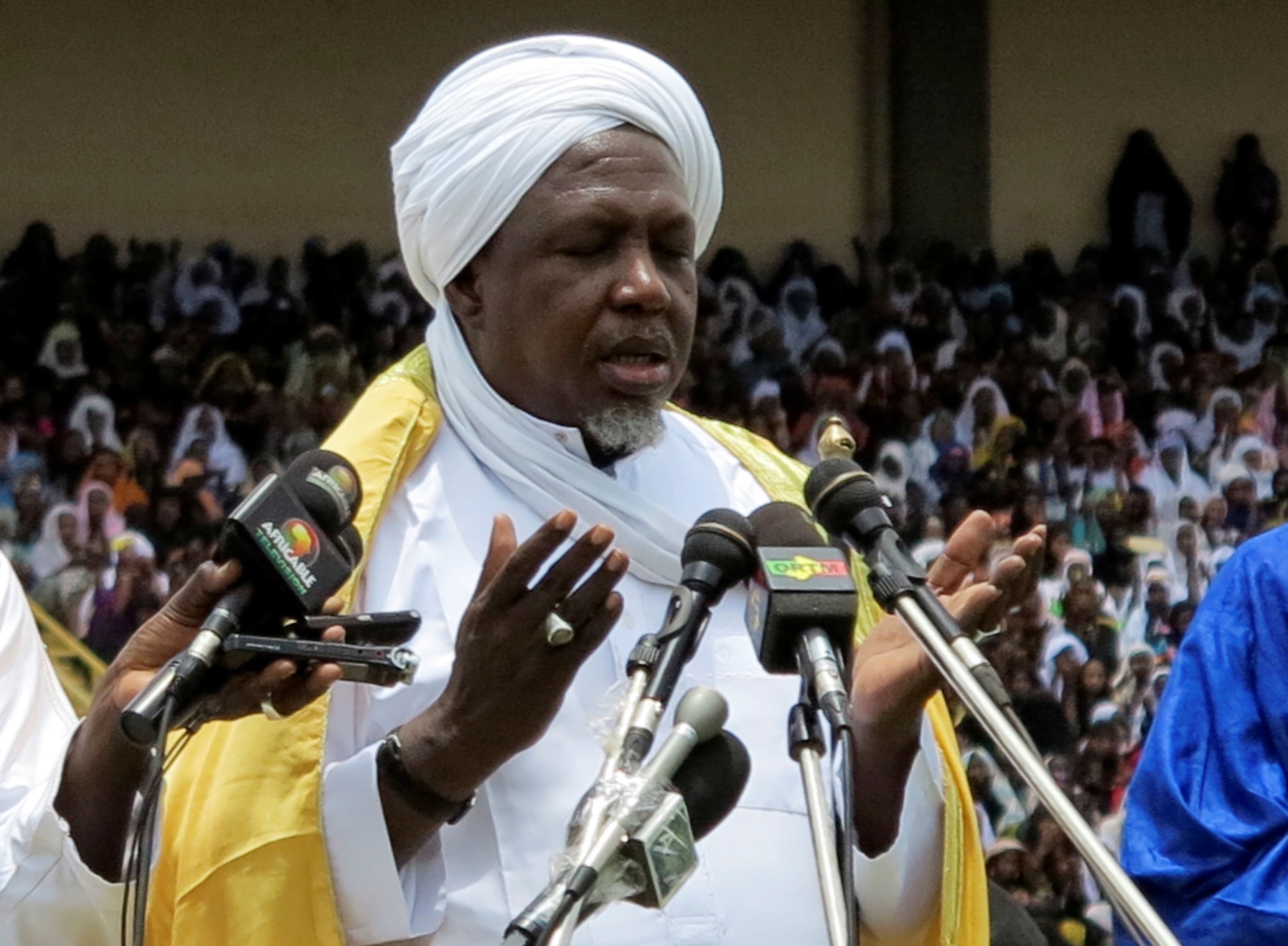We need to do something about... Mali: The leaders of 5 West African countries are in Mali, negotiating a solution to the country's worsening political crisis. It's quite an impressive show of regional mediation force, but will it be enough to force President Ibrahim Boubacar Keita to step down? For weeks, thousands of protestors have been saying they are fed up with rampant corruption, election fraud, a military incapable of stopping rising jihadist attacks. The key player in this crisis is Mahmoud Dicko, an immensely popular Muslim cleric who still supports the president — although his followers don't. Dicko says, for now, he would rather Keita stay in power and address the people's grievances. But outside parties like the UN and the powerful Economic Community of West African States are worried that continued unrest in Mali could further destabilize a region where jihadis are gaining a foothold, and they want Dicko to take over and restore stability fast.
China's illegal fishing armada exposed: A "dark fleet" of almost a thousand Chinese fishing boats has been operating illegally in North Korean waters since at least 2017, together catching over $440 million in squid alone, according to satellite data in a new study. If they paid for legit licenses to fish from North Korea, that would be a violation of a UN embargo on most activities that would allow North Koreans to earn foreign currency. Japan and South Korea also have some beef with China here, as the previously unidentified vessels could explain why squid stocks in their own nearby territorial waters have declined over 80 percent since 2003. And to make matters worse, China's "dark fleet" is now also being blamed for chasing away hundreds of North Korean fishing vessels boats that later washed up as "ghost ships" on the coast of Japan, likely after they became stranded and the crews jumped overboard after running out of scarce fuel, facing inclement weather or having engine trouble.
A Turkish kingmaker in Bulgarian politics: After surviving a no-confidence vote in parliament, Bulgarian Prime Minister Boyko Borissov has reshuffled his cabinet in hopes of putting an end to the worst anti-government protests the country has seen in almost a decade. Young Bulgarians have recently hit the streets to demand that Borissov step down over graft scandals, including the allegation that he gave Ahmed Dogan, a businessman and political ally, private control of a public beach on the Black Sea. Perhaps it's just a coincidence that Dogan's Movement for Rights and Freedoms, a party that represents ethnic Turks in Bulgaria, is an essential part of the prime minister's coalition. The opposition has pooh-poohed Borissov's new cabinet, arguing that the changes are cosmetic and that the prime minister himself must face the music over Dogan's preferential treatment. Thirteen years after joining the EU, Bulgaria remains the bloc's poorest and most corrupt member state — is there an opportunity to change that now?
More For You
China was largely absent from the core conversations at the 2026 Munich Security Conference. That, says Ian Bremmer, is telling.
Most Popular
At the 2026 Munich Security Conference, Brad Smith announces the launch of the Trusted Tech Alliance, a coalition of global technology leaders, including Microsoft, committing to secure cross-border tech flows, ethical governance, and stronger data protections.
When the US shift from defending the postwar rules-based order to challenging it, what kind of global system emerges? CFR President Michael Froman joins Ian Bremmer on the GZERO World Podcast to discuss the global order under Trump's second term.
TODAY at 12 pm ET: Watch our Global Stage live premiere from the Munich Security Conference
Tune in today at 12pm ET/6pm CET for the live premiere of our Global Stage from the 2026 Munich Security Conference, where our panel of experts takes aim at the latest global security challenges. NY Times National Security Correspondent David Sanger moderates the discussion with Benedetta Berti, Secretary General, NATO Parliamentary Assembly; Ian Bremmer, President & Co-founder, Eurasia Group & GZERO Media; Dr. Wolfgang Dierker, Global Head of Government Affairs, SAP; and Brad Smith, Vice Chair & President, Microsoft.
